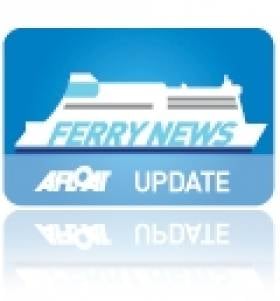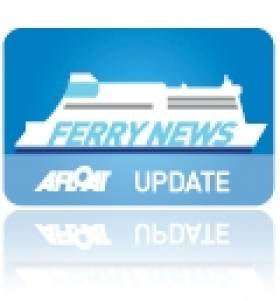Displaying items by tag: Miroslaw Pozniak
Belfast Lough Collision Captain Pleads Guilty to Crash Damage
#FERRY NEWS - The captain of a cargo ship that crashed into a passenger ferry in Belfast Lough last month has pleaded guilty to four charges related to the incident, RTÉ News reports.
More than $1 million of damage was caused when the cargo vessel Union Moon collided with the Stena Feronia on the evening of 7 March, as previously reported on Afloat.ie.
The 27,000-tonne ferry was on its way from Birkenhead in Merseyside to Belfast when it was struck by the cargo ship, captained by Miroslaw Pozniak, about a mile-and-a-half from the shore between Carrickfergus and Helen's Bay.
Fifty-five year old Pozniak, from Poland, was arrested shortly after the incident, charged with 'excess alcohol by the master of a ship'.
At a second hearing in Downpatrick Crown Court he also pleaded guilty to charges brought by the Maritime and Coastguard Agency (MCA) that include failing to keep a proper lookout, failing to safely navigate the lough, and causing serious damage to both vessels.
However, BBC News reports that he denied the charges of failing to follow safety rules and proper watch keeping arrangements, and that these will remain 'on the books' and will not be proceeded with.
Pozniak was released on continuing bail before sentencing at the end of next month. He could face up to two years in prison.
Collision Captain's Case Sent to Crown Court
#FERRY NEWS - BBC News reports that the captain of the cargo ship that collided with a passenger ferry in Belfast Lough could face up to two years in prison as his case has been sent to Crown Court.
Miroslaw Pozniak, 55, pleaded guilty on Friday to the charge of 'excess alcohol by the master of a ship' after the cargo vessel Union Moon collided with the Stena Feronia close to the Fairway buoy on Wednesday.
Both vessels were substantially damaged in the incident but there are no reports of injuries.
Newtownards Court heard yesterday that Pozniak has been fired by his employer. He will remain in custody until 20 March when the judge will again consider bail.






























































